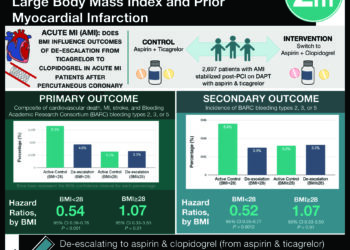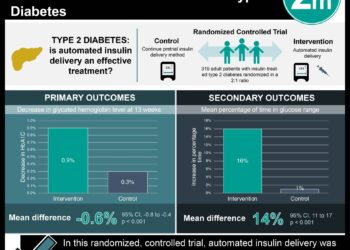Early maternal exercise reduces the incidence of gestational hypertension
1. Women who followed an exercise program initiated during the first trimester were less likely to develop pregnancy-induced hypertension, gain excessive weight, or have a macrosomic infant.
2. Compliance with the exercise regimen was 80%.
Evidence Rating Level: 1 (Excellent)
Study Rundown: Gestational hypertension, formerly referred to as pregnancy-induced hypertension, is defined as the new onset of high blood pressure in pregnancy. It can progress to more serious conditions like pre-eclampsia and eclampsia, which are characterized by severely high blood pressures and sings of end-organ dysfunction, like kidney failure and seizures. Not only can gestational hypertension cause problems for the mother, it can lead to neonatal complications like growth restriction and preterm delivery. In the U.S., hypertensive disorders greater than 10% of pregnancies and while blood pressures typically normalize after delivery, these disorders have been shown to increase risks of developing hypertension, cardiovascular and kidney disease in the future. Though the exact cause is unknown, evidence suggests gestational hypertension is on the spectrum of pre-eclampsia, begins in early pregnancy and is mediated by risk factors like gestational weight gain and maternal obesity. In this study, researchers assessed the impact of a supervised exercise regimen starting in early pregnancy and the incidence of gestational hypertension and associated maternal and neonatal complications.
Women randomized to the early exercise intervention group were less likely to develop pregnancy-induced hypertension, gain excessive weight or have a macrosomic infant. Strengths included rigorous study design and assessment of exercise patterns in both control and intervention arms. Application of findings to populations with other demographic compositions may be limited by use of a relatively homogenous group of Caucasian women in Spain with uncomplicated pregnancies. Future studies might reassess the impact of an exercise intervention in a more diverse patient population.
Click to read the study in AJOG
Relevant Reading: Exercise or other physical activity for preventing pre-eclampsia and its complications
In-Depth [randomized controlled trial]: Women were randomized to an exercise intervention group (n=382) and control group (n=383), receiving standard of care. Exercise training sessions involved a combination of aerobics, strength training and flexibility occurring 3 days per week for 50-55 minutes. Exercise sessions began from 9-11 weeks and lasted through 38-39 weeks of gestation. The primary outcome was incidence of pregnancy-induced hypertension, defined as an average a systolic blood pressure ≥140 mmHg and diastolic pressure ≥90 mmHg after at least 2 measurements. Secondary outcomes included total gestational weight gain, birth weight, and infant macrosomia.
Compared to women randomized to the exercise intervention, those randomized to the control group experienced increased odds of developing gestational hypertension (OR:3.0, 95% CI:1.3-6.8), gaining excessive weight (OR:1.5, 95% CI:1.0-2.0), and giving birth to a macrosomic infant (OR=2.5, 95% CI=1.0-6.2). There was a more than 80% compliance with the exercise regimen in the intervention group.
Image: PD
©2015 2 Minute Medicine, Inc. All rights reserved. No works may be reproduced without expressed written consent from 2 Minute Medicine, Inc. Inquire about licensing here. No article should be construed as medical advice and is not intended as such by the authors or by 2 Minute Medicine, Inc.







